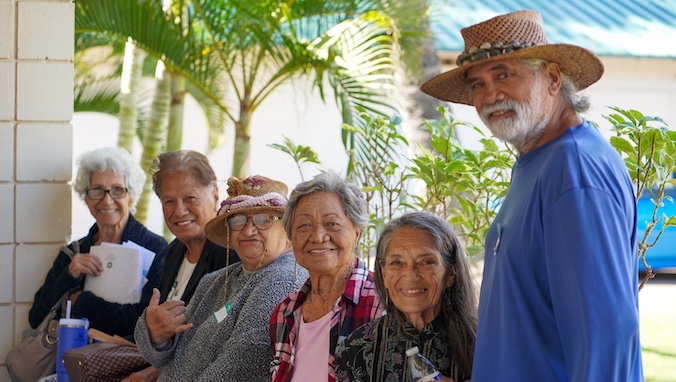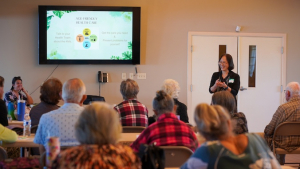
In February, University of Hawaiʻi at Mānoa programs brought dementia education and caregiving resources to Molokaʻi, offering residents a rare chance to connect with experts and support services close to home.
Hosted by the Hā Kūpuna at the Thompson School of Social Work & Public Health and Pacific Islands Geriatrics Workforce Enhancement Program (GWEP) at the John A. Burns School of Medicine, in partnership with ALU LIKE, Inc., the event drew strong community interest and highlighted the growing need for aging and brain health support in rural areas.

“Sharing knowledge outside the walls of academia is critical,” said Miquela Ibrao, associate director of Hā Kūpuna. “When we equip families and caregivers in rural areas with the tools they need, we reduce health disparities and empower communities.”
For Curtis Crabbe, attending was personal. “I initially showed up to learn about my potential in acquiring dementia,” he said. “I ended up observing the huge disparity Molokaʻi has in disseminating any information on dementia and its associated challenges.”
Held at a time when access to health education on the island remains limited, the event featured a talk by Aida Wen, GWEP principal investigator and geriatrician with The Queen’s Health System, along with interactive sessions in Tai Chi, Hawaiian language, and creative writing. Social worker Sara Tompkison and Alzheimer’s Association’s Cindy Fowler led a session on the Positive Approach to Care.
To increase long-term access to geriatric services, GWEP and Queen’s have begun offering telehealth support to kūpuna on Molokaʻi.
Organizers say the momentum is growing. A follow-up event is planned for September to share more about brain health and caregiving resources. This effort is part of a larger initiative by Hā Kūpuna and ALU LIKE to reach underserved communities statewide. Previous events have taken place in Kona, Hilo and Pāhoa.

